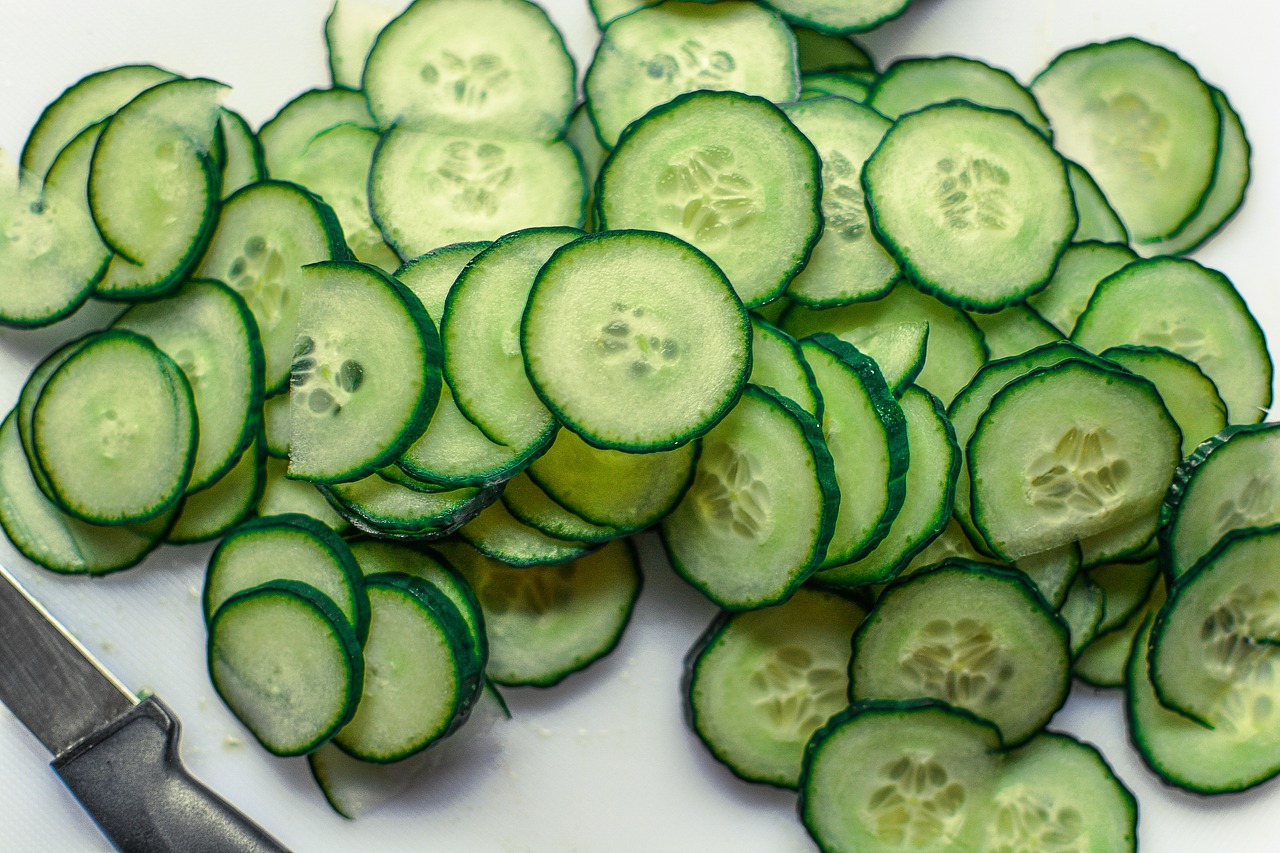In 2021, hypertension continues to be one of the bigger threats to health. Untreated hypertension can easily damage other organs, including the kidneys and even the brain. The risk of developing cardiac issues can also evolve when you have hypertension.
People who already have hypertension should ensure that their condition is controlled not to have problems later in life. The more you control your hypertension, the better the results as you age. Can cucumber contribute to improving your heart health?
The Relationship Between Cucumber, Potassium and Blood Pressure.
Foods like cucumber are rich in the mineral potassium, which has been shown to have a positive impact on a person’s blood pressure. Essentially, potassium is sodium’s foil or opponent within the body.
As the sodium level rises, potassium has to increase too, to counter the effects of sodium. Unfortunately, modern diets that focus too much seasoning and taste tend to leave out essential nutrients and overemphasize sodium. It is one of the simplest compounds to add to food to make it taste good.
An estimated 1.13 billion people are now estimated to have high blood pressure, and the figures are still increasing, which isn’t promising for those who want a healthier world in the future. So right now, people have to start making better decisions with their diets if they want to counter the effects of modern living.
Studies of hypertensive individuals have shown that high sodium intake and low potassium intake play a role in determining if a person would have high systolic blood pressure. If potassium’s dietary intake is >2.5% of the total nutrient composition, that’s when the systolic high blood pressure begins.
Another study that focused on supplementation of dietary potassium showed that individuals who consume more sodium in their meals benefit from the extra potassium, reducing the blood pressure levels. An average of 90 mmol/day of additional potassium is recommended for people with hypertension.
Now, how do these facts connect with consuming cucumbers?
If we look at the nutrient composition of cucumbers, we would see that a single serving of cucumber (about 100 grams of sliced cucumber) provides up to 147 mg of potassium and vitamin K.
The ideal daily requirement for adults (for the mineral potassium) is at least 3,500 mg/daily. Now the figure that we are looking at may not be that big at all but think about it – cucumber is one of the lightest things in the culinary world, and you will barely feel that you are eating cucumber.
Suppose you can increase your daily intake of cucumber and other foods that are naturally rich in potassium. You can easily hit the required 3,500 mg of potassium requirement for a healthier heart. To be clear, not everyone attains their potassium requirements, which is why many people resort to vitamin and mineral supplementation.
However, these supplements can only go so far, and it’s vital that you also make sure that you are getting these essential nutrients naturally with what you are eating daily. Additionally, nutrients derived from the food that you eat will have higher bioavailability and good for the body, too – you are going to be 100% sure that you are getting the right type of nutrients without any side effects from pharmaceuticals.
However, potassium is not vitamin K, and these two nutrients are frequently confused for each other. Luckily, cucumbers contain both of these nutrients even though cucumbers are essentially just solid deposits of water, comprising 95% water.
Take note – the bigger the cucumber, the more potassium you are going to get. If a cucumber is at least seven inches long, you can get up to 273 milligrams of potassium if you consume all of it. There’s a reason why people who frequently snack on cucumbers feel good about themselves – it’s probably the potassium helping their hearts along the way.
If you eat food rich in sodium daily, it’s time to give your heart some much-needed backup by eating more cucumbers. Cucumbers are relatively inexpensive and can be eaten on their own. Now, if you like pickles, that’s a good option, too.
Pickles are just smaller cucumbers that are cultivated for their size. Otherwise, they still provide the same baseline of nutrients found in all cultivars of cucumber. That’s not a bad deal. Pickles are super useful for sandwiches and subs, and you can match so many sandwich spreads with them.
That’s not all of the benefits of cucumber, either:
- Consuming cucumbers has been associated with lower incidences of cancer in some adult patients. The phytonutrients present in cucumbers have been shown to control how cancer cells multiply and spread.
- The same phytonutrients that are good for stopping cancer cells from spreading too quickly are also hailed as the reason cucumbers are great for the skin. Maintaining healthy and younger-looking skin can be challenging if you don’t have a diet component backing all the external aid you are using to maintaining your skin. Luckily, you can eat more cucumbers to improve your skin’s health.
- Eating cucumbers is a good way to improve your inflammation markers. In general, eating more vegetables can help lower the inflammation of tissues in the body. It would help if you sustained your diet to eat more vegetables and fruits rich in flavonoids and antioxidants.
- Let’s not forget that cucumbers can provide everyone with a substantial amount of hydration for every 100 grams. The more hydration you get, the healthier your organs will be. You can even take it one step further by adding cucumbers to water and making your very own detox drink at home. For flavor, you’re free to add slices of apples and lemons – that would be up to you.

